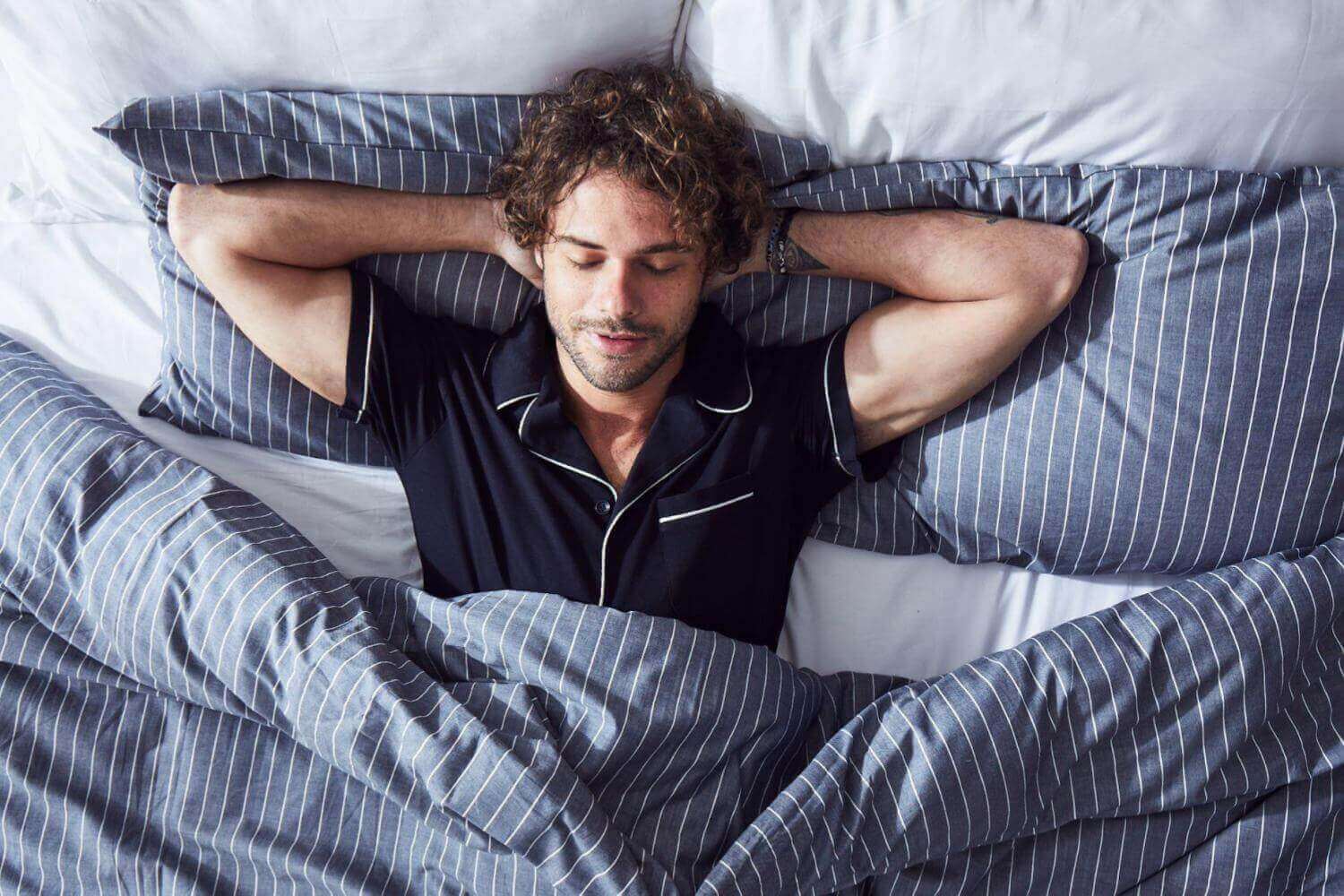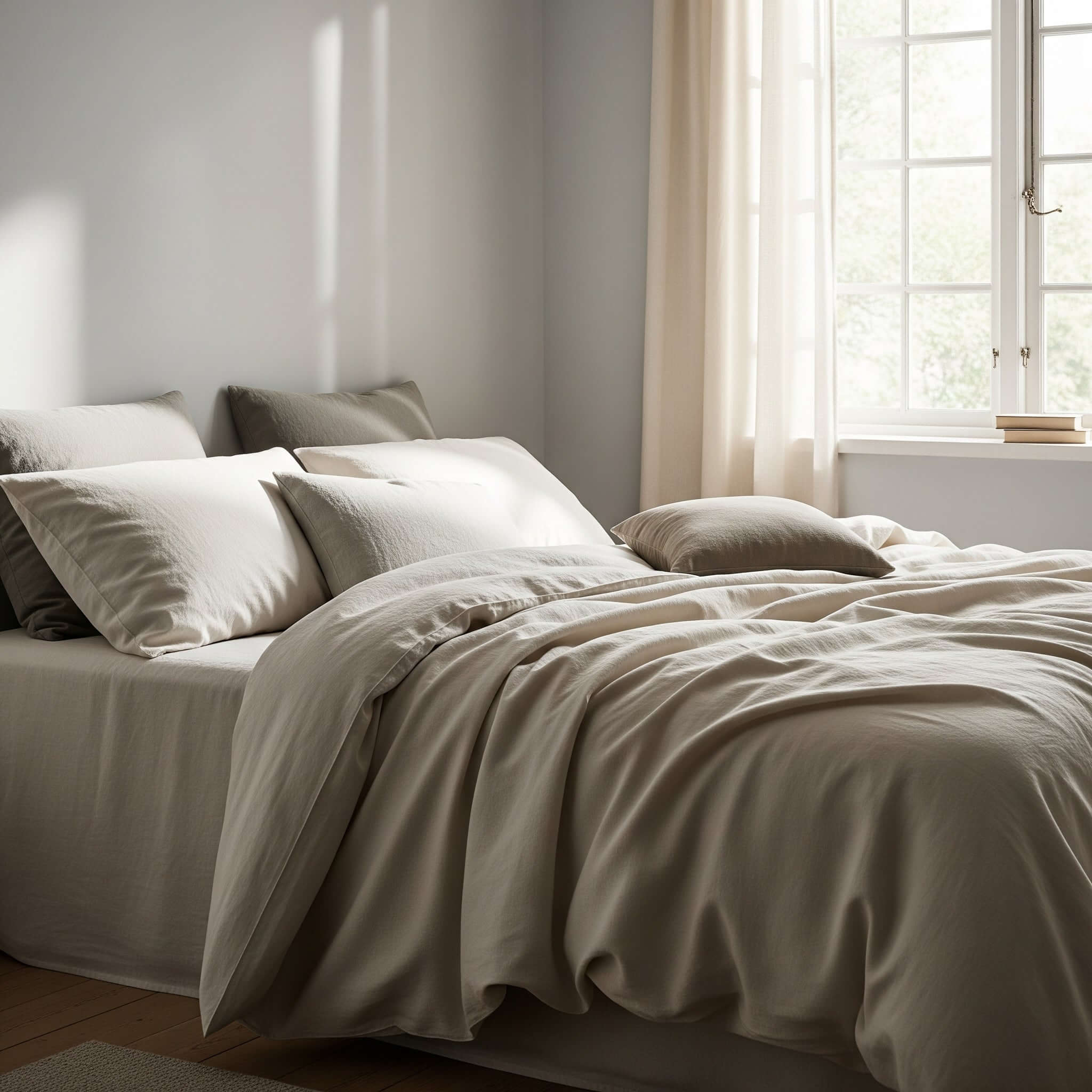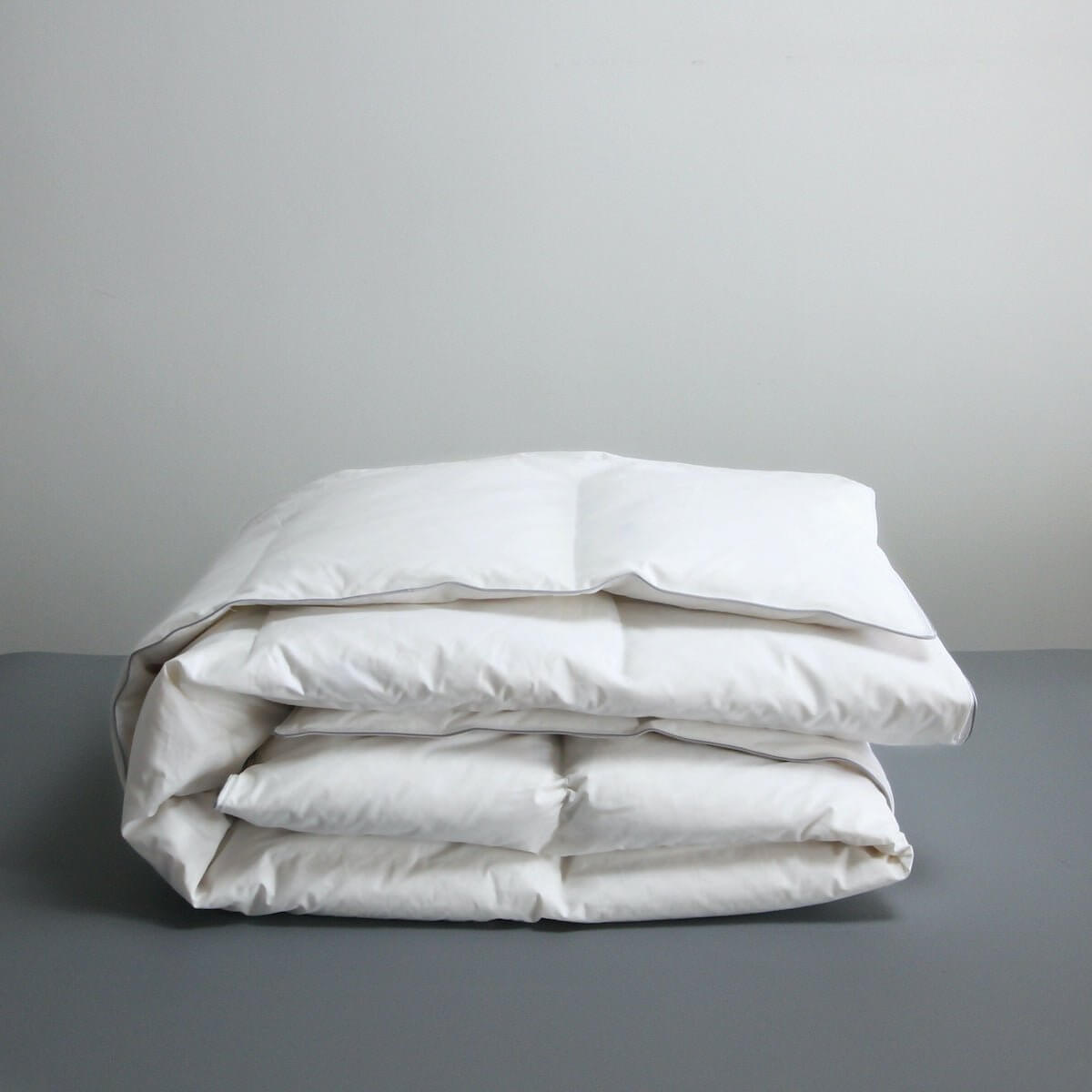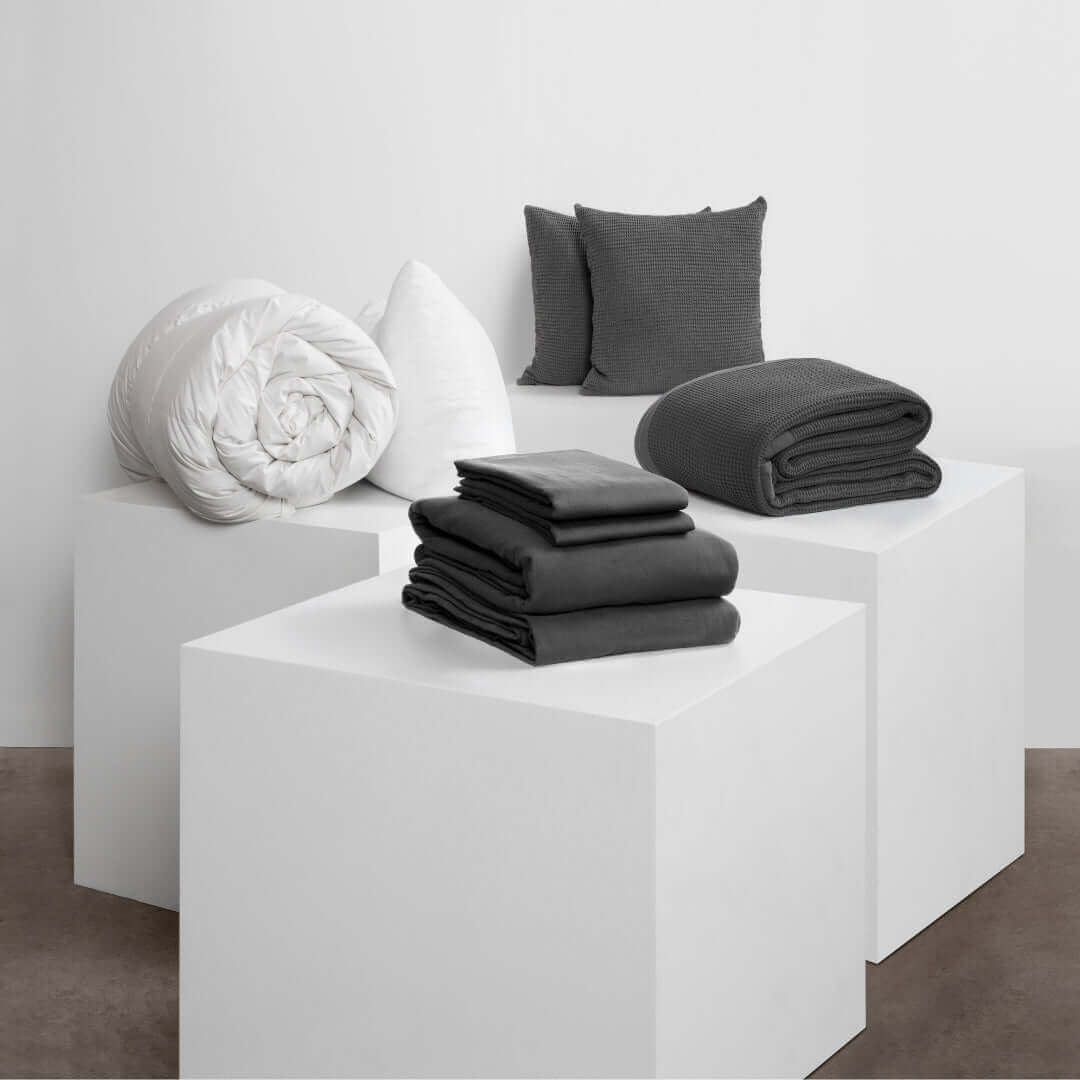Bedable believes making the perfect bed should be simple. Yet, getting a satisfactory night’s sleep is not always so easy. In fact, the NHS reports that 1 in 3 suffer from sleep deprivation, with many saying it has an impact on their following day. Since getting a great night's sleep is fundamental to unlocking the mind and body of stress and mental difficulty, we’ve sourced a helpful guide to highlight the importance of sleep on health and wellbeing.
We asked Alex Dimitriu M.D., a psychiatrist who has a dual board certification in psychiatry and sleep medicine, why sleep matters. As a medical reviewer for Business Insider, the Sleep Foundation and a contributing writer to the Encyclopedia of Sleep Medicine, Alex is an expert in his field. His work that helps patients to optimise sleep performance by day and peak restorative sleep by night has been internationally recognised by Men's Health, Cosmopolitan and The New York Times. In acknowledging this expertise in psychiatry, sleep, and transformational therapy, we asked:
A great night’s sleep: what is it and how do I know if I’m getting it?
Alex defines good sleep as “when you almost wake up naturally, and feel refreshed, sharp, and calm the next day, without needing too much coffee. Usually this is about 7 to 9 hours for most adults”. If this doesn't sound familiar or you are waking up with difficulty, feeling weary, restless and rough, then perhaps you need to rethink your schedule. Are you sleeping for the recommended number of hours?
How can poor sleep impact health and wellness?
Aside from the overall feeling of mood and an instantaneous coffee-drinking habit, lack of sleep can negatively affect health and wellness in more ways than one. Alex suggests, “Poor sleep can throw off a lot of things. People can become irritable, tired, depressed, forgetful, and more obsessive and ruminative. It can get harder to distance oneself from intense emotions. Memory also suffers. The body feels poor sleep with increased appetite, elevated cortisol, as well as blood sugar”.
We also asked Alex for his top three tips to a healthy night’s sleep:
- Maintain regular bed and wake times: Adopting regular sleep patterns and keeping a sleep schedule even on the weekends maintains your internal body clock, helping you fall asleep and wake up easier.
- Be asleep before midnight: Not sleeping before midnight can disrupt this internal biological clock. You may have heard of the phrase ‘an hour of sleep before midnight is worth two after’. This refers to our circadian rhythm that signals when it’s time to sleep. Going outside of this flow can therefore impact both physical and mental health; make a habit of heading to bed pre-midnight.
- Get exercise and "vertical outdoor time" during the day: Vertical exercise is anything that is an actual or simulated ascension, like running or walking. Participating in physical activity throughout the day can improve sleep quality and duration. The two have a dialectical relationship, with sleep and exercise labelled as the pillars of mental health.
How can bedding and sleeping environments ensure a restful night’s sleep?
Each aspect of your bedroom setting can influence how well you sleep. Studies have shown that many are able to simply sleep better when their bedroom is optimised for comfort and relaxation. Our washed cotton comfort bedding, available in a range of clean colour blocks and geometric shapes, provides the ultimate sleep-ready setting. After all, a bed that promotes sleep can improve on how you feel when you’re awake. Shop Bedable’s bedding sets to assist in getting that all-important night’s sleep.
What are the benefits of getting a healthy night’s sleep on wellbeing?
By following these tips to ensure a great night’s sleep, you’re sure to see an improvement in overall health and well-being. As Alex states, “sleep is essential to both the mind and body. For the mind, sleep helps memory and emotional systems, and it also cleans up all the waste products for the day. Good sleep can help with mood, anxiety, impulsivity, memory, and attention and focus (yes, ADHD or ADHD like symptoms). For the body, sleep helps our metabolism, glucose and fat control, appetite, immunity, and even skin quality and appearance”. There is more to just getting the essential shut-eye; sleep matters.

*These tips were based on suggestions by Alex Dimitriu MD, of Menlo Park Psychiatry and Sleep Medicine.
People Also Asked
Why does sleep matter so much?
Sleep matters immensely because it's crucial for overall health and well-being. It allows our bodies to repair, our brains to process information, and our immune systems to strengthen, ultimately affecting our physical and mental performance.
What are 5 reasons that sleep is important?
Sleep is vital for memory consolidation, emotional regulation, physical recovery, hormone balance, and cognitive function. These processes ensure we wake up refreshed and ready to face daily challenges.
What are the 5 benefits of sleep?
The five key benefits of sleep include improved cognitive performance, enhanced mood, better physical health, stronger immune function, and increased longevity. Quality sleep positively impacts nearly every aspect of our lives.
What is the 10 5 3 2 1 rule for sleep?
The 10-5-3-2-1 rule suggests: no caffeine 10 hours before bed, no food 5 hours before, no work 3 hours before, no screens 2 hours before, and 1 minute to reflect on your day. This routine promotes better sleep hygiene.
What are the 5 stages of sleep?
The five stages of sleep are: light sleep (stages 1 and 2), deep sleep (stages 3 and 4), and REM sleep. Each stage plays a crucial role in rest and recovery, with the cycle repeating throughout the night.
What are the benefits of sleeping naked?
Sleeping naked can improve sleep quality by regulating body temperature, enhancing skin health through better air circulation, boosting intimacy in relationships, and increasing comfort. It may also help with metabolism and stress reduction.
How much sleep per age?
Sleep needs vary by age: newborns need 14-17 hours, toddlers 11-14 hours, school-age children 9-11 hours, teenagers 8-10 hours, adults 7-9 hours, and older adults 7-8 hours. Individual needs may vary within these ranges.
How do I improve my sleep?
To improve sleep, establish a consistent sleep schedule, create a relaxing bedtime routine, limit screen time before bed, ensure your bedroom is dark and cool, and avoid caffeine and heavy meals close to bedtime.
What are the disadvantages of sleeping?
While sleep is essential, potential disadvantages include oversleeping, which can lead to grogginess and reduced productivity. Excessive sleep may also be associated with certain health issues, though this is often a symptom rather than a cause.
How to sleep faster?
To fall asleep faster, try the 4-7-8 breathing technique, practice progressive muscle relaxation, use visualisation techniques, ensure your room is dark and cool, and avoid screens before bedtime. Consistency in these practices is key.
How many hours should I sleep?
Most adults should aim for 7 to 9 hours of sleep per night. However, individual needs may vary based on factors such as age, lifestyle, and overall health. Consistency in sleep duration is as important as the amount.
Why do I love sleeping so much?
Loving sleep is natural, as it's a restorative process that makes us feel good. It may also indicate that you're listening to your body's needs. However, excessive sleep desire could signal underlying health issues or stress.
What is the sleep perfect formula?
The perfect sleep formula involves consistent sleep and wake times, a relaxing bedtime routine, a comfortable sleep environment, and healthy daytime habits. It's about creating a personalised approach that works for your lifestyle and needs.
Can we split 8 hours sleep?
While it's possible to split sleep, it's generally not recommended. Continuous sleep allows for proper cycling through sleep stages. However, some cultures practice biphasic sleep, which can work if it aligns with your natural rhythms and lifestyle.
What is 321 bedtime?
The 321 bedtime routine suggests: 3 hours before bed, finish eating; 2 hours before, finish work; 1 hour before, turn off all screens. This method helps prepare your body and mind for restful sleep.
What type of sleep is best?
The best type of sleep is uninterrupted, quality sleep that allows you to cycle through all sleep stages. A good balance of light, deep, and REM sleep is crucial for optimal rest and recovery.
Is 6 hours of sleep enough?
While some individuals may function on 6 hours of sleep, most adults require 7 to 9 hours for optimal health and performance. Consistently getting less than 7 hours may lead to sleep debt and associated health risks.
How much deep sleep by age?
Deep sleep needs vary by age: young adults might get 1.5-2 hours, while older adults may get 30 minutes to an hour. Generally, 15-25% of total sleep time should be deep sleep, regardless of age.
Is sleeping without a pillow good?
Sleeping without a pillow can be beneficial for some, particularly back sleepers, as it may promote better spine alignment. However, side and stomach sleepers often need pillows for proper support and comfort.
Is it better to sleep cold or hot?
It's generally better to sleep in a cool environment, ideally between 15-19°C (60-67°F). A cooler room helps lower your core body temperature, which is necessary for initiating and maintaining sleep.
Why is sleeping good for skin?
Sleep is excellent for skin health as it allows for cell regeneration and repair. During sleep, the body produces collagen, increases blood flow to the skin, and balances hydration, leading to a healthier, more youthful appearance.
What is the 10 3 2 1 0 rule for sleep?
The 10-3-2-1-0 rule for better sleep suggests: no caffeine 10 hours before bed, no food/alcohol 3 hours before, no work 2 hours before, no screen time 1 hour before, and 0 snooze button in the morning. This routine promotes optimal sleep hygiene.










Share:
Grey Bedroom Style Ideas
How to Take Your Loungewear Beyond WFH